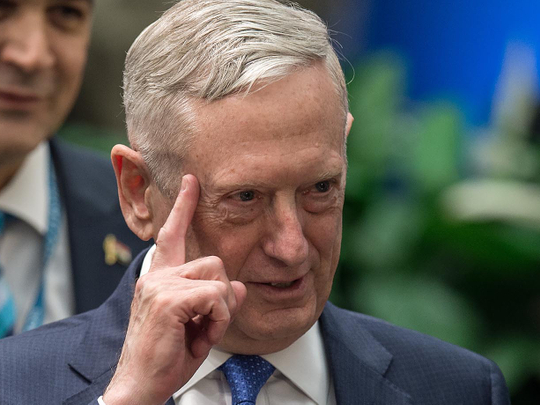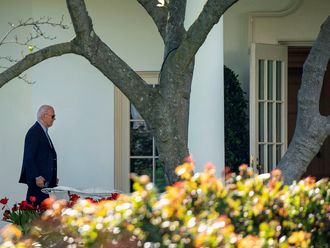
Washington: US Defence Secretary Jim Mattis told lawmakers Wednesday that Nato does not track “past money owed,” days after President Donald Trump claimed Germany has shortchanged the alliance by massive amounts.
“I cannot give you an accounting for past money owed, because that’s not the way we do that in Nato,” Mattis said at a Senate hearing in Washington.
After meeting with German Chancellor Angela Merkel at the White House last week, Trump tweeted that Germany owes “vast sums of money to Nato & the United States must be paid more for the powerful, and very expensive, defence it provides to Germany.”
But Mattis told lawmakers that is not how the security alliance works.
Each member country has committed to spend two percent of its gross domestic product, or economic output, on defense by 2024, and does not make direct payments to the United States, by far the largest member.
“We do it through capabilities. That’s the commitment each nation makes,” the Pentagon chief said.
So far, only five of the 28 members of Nato have met their two per cent target: Britain, Estonia, Greece, Poland and the United States, which spends the most — 3.4 percent of GDP.
The defence secretary noted that he expected Germany and three other nations to hit the two-percent mark within a year.
“And we’ll see more nations coming online, assuming their economies can hold together the way they are right now or improve,” Mattis said.
US defence spending — approximately $600 billion (Dh2.2 trillion) in 2016 — accounts for the bulk of the total defence budgets of Nato’s members.
But member states resolved to increase defense spending in 2014, after Russia annexed Ukraine’s Black Sea peninsula Crimea and began backing separatist rebels in eastern Ukraine.
Mattis, a retired Marine general, has frequently been on the front lines of damage control following Trump’s fiery rhetoric — especially on Nato.
Nato countries were deeply unsettled by Trump’s campaign talk in which he branded the alliance as “obsolete.”
Though Trump has moderated his stance since, Mattis in February travelled to Brussels to reassure allies of ongoing US commitment to Nato.












